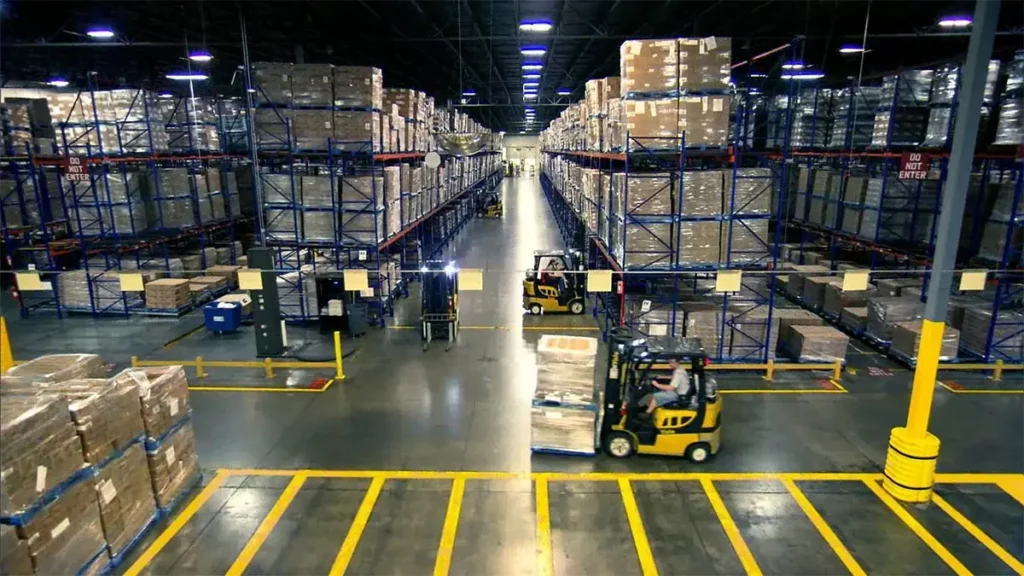
Contract logistics, often referred to as third-party logistics (3PL), is a vital and strategic component within the field of supply chain management. This specialized practice involves outsourcing various logistics functions to expert third-party providers, allowing companies to streamline their operations, improve efficiency, and enhance customer service. In this article, we will explore what contract logistics entails. We delve into the reasons why it holds such significance in the broader landscape of supply chain management.
What is contract logistics?

Contract logistics, also known as third-party logistics (3PL), is a business arrangement in which a company outsources various logistics and supply chain management functions to a specialized third-party provider. These third-party logistics providers are experts in managing and optimizing various aspects of the supply chain, including transportation, warehousing, distribution, order fulfillment, and inventory management.
Why is contract logistics important in supply chain management?
Contract logistics plays a crucial role in supply chain management for several reasons:
Expertise and Specialization
Contract logistics providers are experts in their field. They have the knowledge, experience, and resources to efficiently manage and optimize various aspects of the supply chain. This expertise can lead to better operational efficiency and cost savings.
Focus on Core Competencies
Outsourcing logistics functions to a 3PL allows a company to concentrate on its core competencies, such as product development, marketing, and sales. This specialization leads to improved product quality and competitiveness.
Scalability and Flexibility
Contract logistics providers can scale their services up or down based on the client’s needs. This flexibility is especially valuable during periods of growth or seasonal demand fluctuations.
Cost Reduction
Contract logistics can lead to cost reduction in various ways, including through economies of scale, optimized transportation and warehousing. educed labor costs, and more efficient inventory management. Companies often benefit from these cost savings without the need for significant capital investment.
Improved Customer Service
A well-managed contract logistics relationship can result in faster order processing, on-time deliveries, and better customer service. This can lead to increased customer satisfaction and loyalty.
Overall, contract logistics is important in supply chain management because it allows companies to access specialized logistics services, reduce costs, enhance their focus on core operations. nd improve overall supply chain efficiency.
How to choose the right logistics option for your business

Choosing the right logistics option for your business is a critical decision that can significantly impact your operational efficiency and customer satisfaction. Here are steps to help you make the right choice:
Assess Your Needs:
- Begin by conducting a thorough assessment of your current and future logistics requirements. Consider factors such as the volume of goods, the nature of your products, your geographic reach, and any special handling or storage requirements.
Define Your Objectives:
- Clearly define your logistics objectives. Do you aim to reduce costs, improve delivery times, expand to new markets, or enhance customer service? Understanding your goals will help you choose the right logistics solution.
Research Third-Party Logistics Providers (3PLs):
- If you opt for outsourcing, research and evaluate potential 3PL partners. Look for providers with experience in your industry, a strong track record, and a range of services that match your needs.
Cost Analysis:
- Compare the costs of in-house logistics management with the fees and charges associated with outsourcing. Consider the total cost of ownership, including hidden costs, to make an informed decision.
Flexibility and Scalability:
- Consider the provider’s ability to scale up or down to meet your changing needs. Ensure that they can adapt to your business’s growth and seasonality.
References and Case Studies:
- Ask for references and case studies from potential logistics providers. This can provide insights into their capabilities and reliability.
Risk Management:
- Discuss how the 3PL manages risk, handles disruptions, and ensures business continuity in the face of unforeseen events or emergencies.
Make a Decision:
- Based on your assessment and evaluation, make an informed decision. Choose the logistics option that best aligns with your business goals and needs.
Monitor and Optimize:
- After selecting a logistics option, continually monitor its performance. Regularly evaluate and optimize the logistics strategy to adapt to changing market conditions and to ensure you continue to meet your objectives.
Choosing the right logistics option is a strategic decision that can give your business a competitive edge.
What is the difference between logistics and contract logistics?

Logistics and contract logistics are related concepts, but they differ in their scope and focus:
Logistics:
- Logistics refers to the overall process of planning, implementing.It help controll the efficient flow and storage of goods, services, and related information from the point of origin to the point of consumption.
- It encompasses a broad range of activities, including transportation, warehousing, inventory management, order fulfillment, and distribution.
- Logistics can be managed in-house by a company as part of its core operations or outsourced to third-party logistics providers (3PLs).
Contract Logistics (or Third-Party Logistics – 3PL):
- Contract logistics, also known as third-party logistics (3PL), is a specific subset of logistics in which a company outsources some or all of its logistics and supply chain functions to a specialized third-party provider.
- 3PLs are external companies that offer expertise and services in managing various logistics functions, such as transportation, warehousing, distribution, and more.
- Contract logistics involves a contractual agreement between the company (the client) and the 3PL to handle specific logistics operations or the entire supply chain, often on a long-term basis.
In summary, logistics is a broader concept that encompasses the entire spectrum of activities related to the movement and management of goods and information within a supply chain. Contract logistics, on the other hand, is a specific approach within logistics where a company partners with a third-party provider to outsource and optimize various logistics functions according to a contractual arrangement.